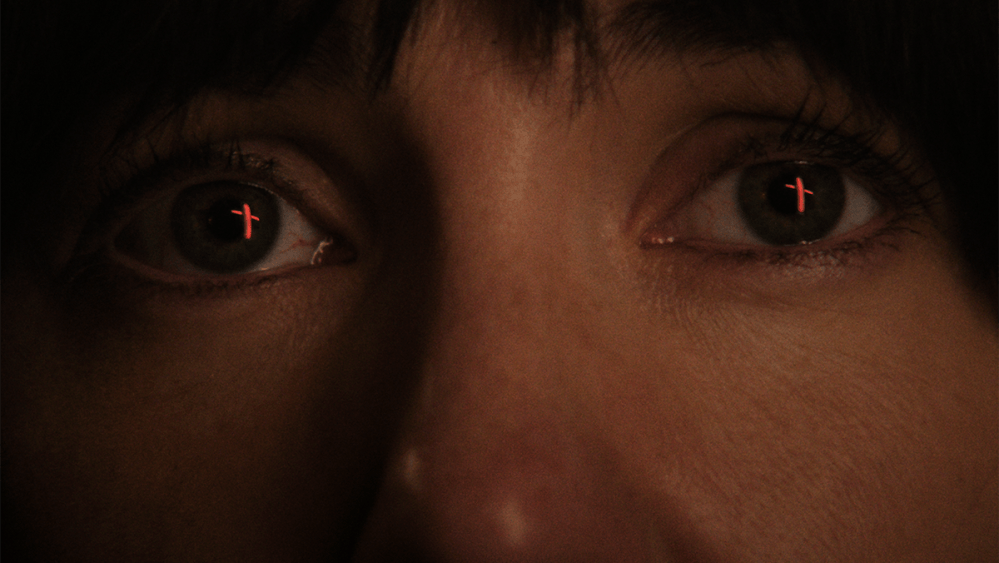An Unnerving Irish Folk-Horror Film
J.R.R. Tolkien famously said that “cellar door” is the most beautiful pairing of words in the English language. You’re not likely to think so fondly of the phrase, however, while watching “Fréwaka,” an old-dark-house horror movie in which said door — red and creaky and decorated with a rusty horseshoe that radiates the very opposite of good luck — proves the portal to a whole realm of unlovely things. The second feature from Irish writer-director Aislinn Clarke may as well share a title with her first, “The Devil’s Doorway,” which landed prominent distribution (including a deal with IFC Midnight) by applying well-worn genre devices to more locally specific nerve points. “Fréwaka” does much the same: It may not be revelatory, but it’s shivery nonetheless.
Like its predecessor, this is an outwardly straightforward chiller, suited to genre-specific events and platforms, but with some darker devil in the details — indies like “Relic” and “Midsommar” are among “Fréwaka’s” apparent reference points, and an out-of-competition premiere at Locarno lends it some arthouse pedigree. The stylistically consistent one-two of Clarke’s debut and this accomplished follow-up could potentially set the filmmaker up for bigger-budget horror assignments away from home. But it’s the mythical and political Irish context of “Fréwaka” that makes it stick, as it draws on lingering national guilt over the iniquities of the Magdalene laundries, and twists deep-seated folk imagery into uncanny nightmare fuel.
The title (Irish-language, like much of the dialogue) is shortened from the original “Fréamhacha,” and translates as “roots” — a concept that hard-headed protagonist Siobhan (Clare Monnelly), who prefers to be called Shoo, doesn’t much care for. There’s certainly little warmth surrounding the past here, beginning with an eerie, cryptic prologue, set in 1973, that sees a rural wedding crashed by yobs in sinister, medieval-looking straw masks, followed by yellowing newspaper headlines that puzzle over the bride’s subsequent disappearance. It’s not immediately clear how this mystery connects to the present, as we cut to the suicide of an elderly woman in a Dublin apartment crammed with lurid Catholic paraphernalia.
Shoo, the dead woman’s daughter, arrives to clear out the place with a dispassionate sangfroid that shocks her pregnant Ukrainian fiancée Mila (Aleksandra Bystrzhitskaya) — who has until now been spared stories of maternal abuse that place the deceased roughly on a par with Margaret White from “Carrie.” A no-nonsense type beginning a new career as a care worker, Shoo would rather keep things inside and keep things moving. So when she’s assigned at the last minute to be a live-in carer for Peig (Bríd Ní Neachtain), a frail shut-in living in a remote village up north, she happily takes the job, leaving Mila in the lurch.
Her impetuosity starts to look like a bad idea when she turns up at Peig’s rambling, crumbling country house — the kind of place about which locals issue vague, dead-eyed warnings instead of giving directions — and finds herself in over her head. The house, stuffed with bad taxidermy and ominous talismans, would be unwelcoming even without the jarring noises and phantom presences coming from behind that cellar door, which Peig herself believes to be a dangerous spiritual threshold. On the one hand, she’s stricken with dementia and disinclined to take her meds; on the other, her moments of clarity are persuasive, and she and Shoo gradually form a terse bond, beautifully articulated by the two leads, that gives the film some welcome emotional ballast.
Many of the scares in “Fréwaka” are in a tradition of old-school occultism or, for those who believe, outright Satanic threat — beginning with the veritably scowling goat (a relative, surely, of “The Witch’s” Black Phillip) that keeps turning up at the most disquieting moments. These could be dismissed by some as mere hooey. But just as there are more rational fears caught up in Peig’s swirling paranoia, Clarke’s script balances supernatural rumblings with the more tangible legacy of trauma and anxiety that women like Shoo and, it turns out, Peig live with as victims of Catholic Church violence. In that context, the precise source of certain bumps in the night begins to feel a secondary concern: If it’s all in their heads, so is the heart of the matter.
Either way, “Fréwaka” is an expertly conducted atmospheric exercise, with a sharp, harsh understanding of closed rural communities free from any touristic Emerald Isle blarney. Production designer Nicola Moroney piles up the spooky iconography, but finds just as much menace and mystery in everyday domestic rot. Narayan Van Maele’s cinematography manages shadowy claustrophobia even in broad-daylight exteriors, while an imaginative, offbeat score by avant-garde musician Die Hexen, heavy on chattering percussion, keeps us tense in our seats. Both Van Maele and Die Hexen were also integral to the success of Kate Dolan’s “You Are Not My Mother,” another fine, raw horror film notably steeped in Irish women’s history — a subgenre that feels like an ongoing social excavation.


